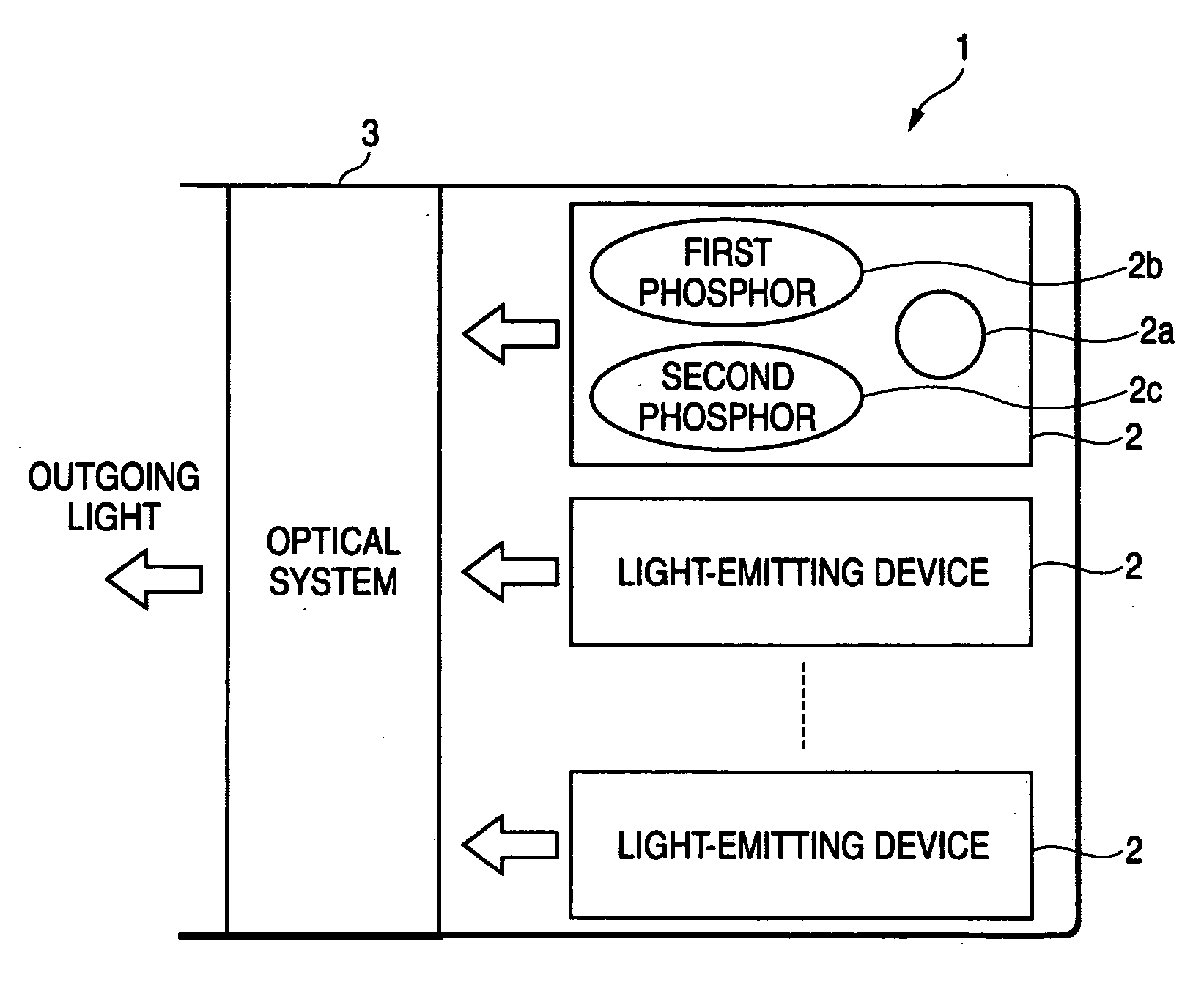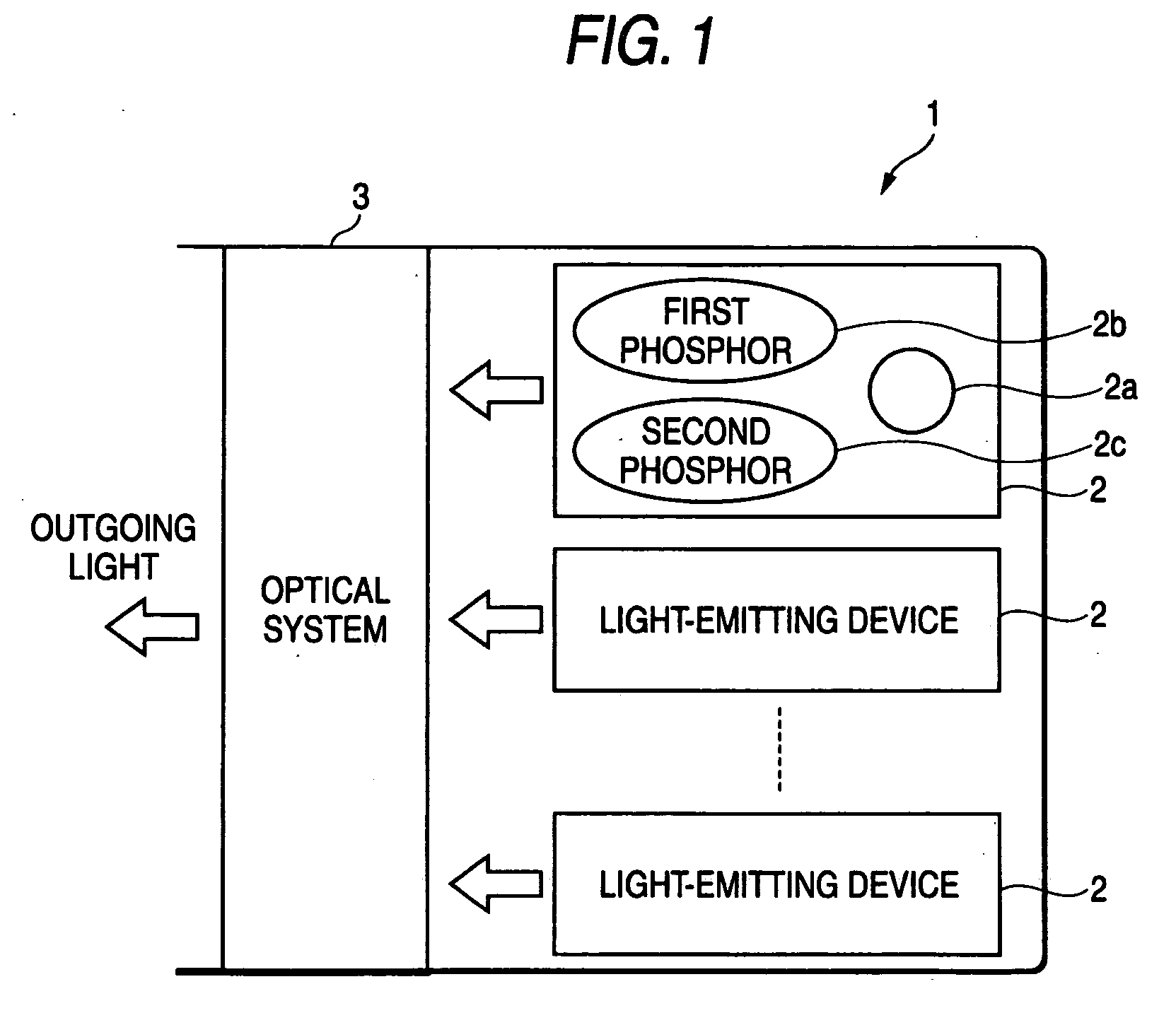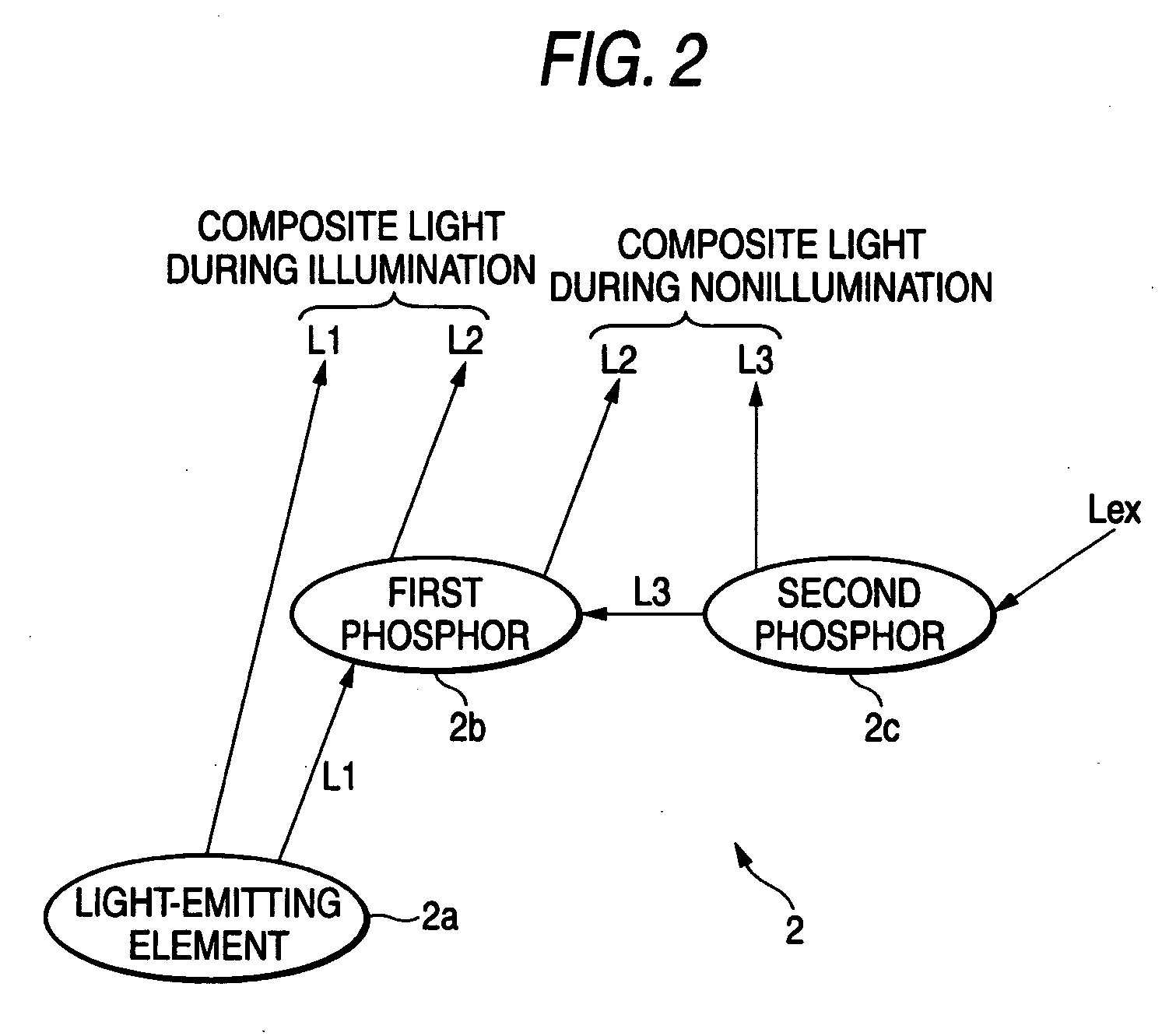Light-emitting device and vehicle lamp
- Summary
- Abstract
- Description
- Claims
- Application Information
AI Technical Summary
Benefits of technology
Problems solved by technology
Method used
Image
Examples
Embodiment Construction
[0024] Although the invention will be described below with reference to the exemplary embodiments thereof, the following exemplary embodiments and modifications do not restrict the invention.
[0025] According to the exemplary embodiments, a light color of a light-emitting device during illumination can be prevented from differing from a color exhibited externally during non-illumination, thereby preventing confusion pertaining to functional colors of lamps, or the like. Specifically, when the light-emitting device is used in a vehicle lamp, influences due to reflection of a phosphor color (a color of a first phosphor) on a component (a lens, a reflection mirror, or the like) forming an optical system of a vehicle lamp can be prevented. This solves problems pertaining to conformance to lamp specifications.
[0026] For instance, in a case where the first light and the second light have wavelength ranges including blue, and the second light has a wavelength range including yellow, the e...
PUM
 Login to View More
Login to View More Abstract
Description
Claims
Application Information
 Login to View More
Login to View More - R&D
- Intellectual Property
- Life Sciences
- Materials
- Tech Scout
- Unparalleled Data Quality
- Higher Quality Content
- 60% Fewer Hallucinations
Browse by: Latest US Patents, China's latest patents, Technical Efficacy Thesaurus, Application Domain, Technology Topic, Popular Technical Reports.
© 2025 PatSnap. All rights reserved.Legal|Privacy policy|Modern Slavery Act Transparency Statement|Sitemap|About US| Contact US: help@patsnap.com



